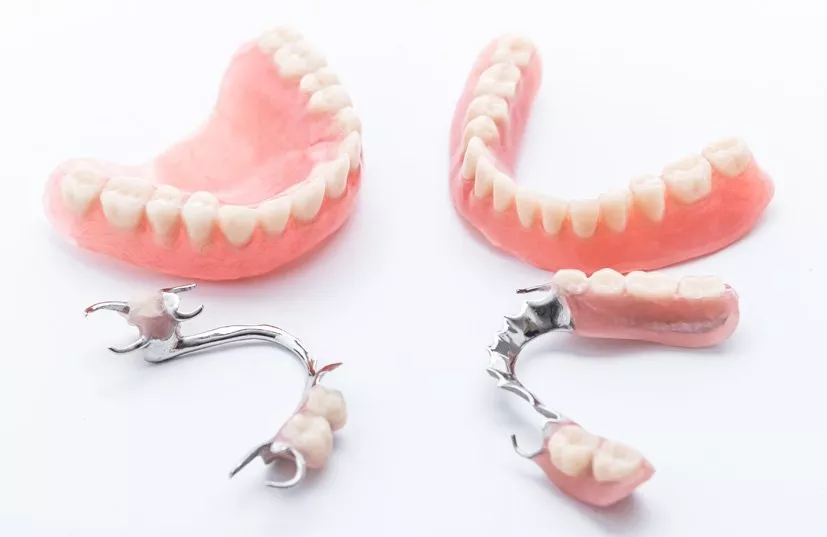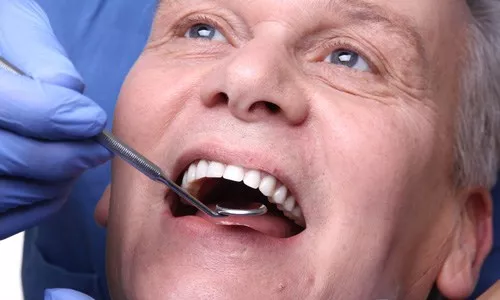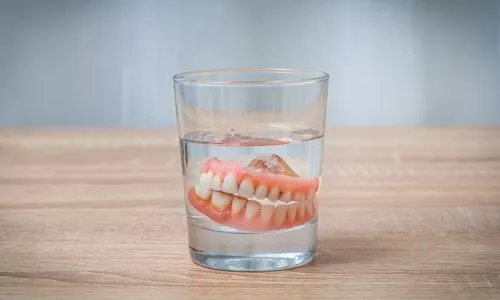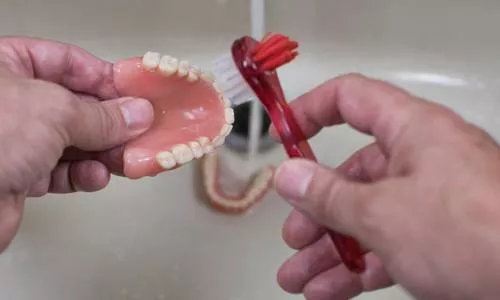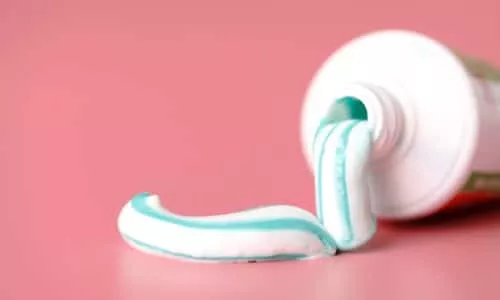This page provides some useful information if you are considering dentures as a tooth replacement solution to replace missing teeth, and some tips for people who already wear removable dentures.
Although we only offer our Smile in a Day dental implant solution at Total Dentalcare (TDC) Implant Centres, we provide this information as we advise anyone considering tooth replacement to carefully research all their treatment options. As every patient has different dental needs and preferences, this will help you choose the right solution and dental team for you.

Why cleaning your dentures is so important
Saliva plays a vital role in keeping mouths healthy. It has antibacterial properties and, by washing away food particles, helps to keep your teeth clean and infection free.
When you wear dentures, saliva may not be able to reach certain parts of your mouth and gums.
Food can become caught under the plate and start to decompose, which can cause bad breath.
This is why it’s important to maintain a good oral hygiene routine and to clean your dentures regularly. The NHS recommends cleaning dentures as often as you would natural teeth (see below).
You should also brush your gums, tongue and any remaining teeth twice a day with a fluoride toothpaste to keep your mouth clean and avoid infections including oral thrush and gum disease. And of course, make sure you have regular check-ups with your dentist or dental technician.
Caring for dentures
Dentures need to be taken out and thoroughly cleaned with a toothbrush twice daily to ensure that any food residue is removed. Rinsing them with water after every meal also helps keep them clean.
They should be disinfected daily according to the instructions given by the denture-cleaning product manufacturer.
This helps protect against infection and soreness and gives your gum tissue a break.
Handle dentures with care. Avoid cleaning them over a hard surface to guard against them breaking if dropped. Fill the basin with water to protect them if they fall.
Your dentist can deep-clean your dentures to help remove stubborn stains and keep them looking clean.
How long do dentures last?
Well looked after dentures can last for five to ten years before needing to be relined with acrylic resin to help them fit better, or replaced.
The most important thing is how well they fit. Gums naturally recede as you age and, while dentures are moulded to fit your gums exactly, your jaw bone will gradually shrink and deteriorate (a natural process known as resorption). This can be made worse by wearing dentures, especially when they don’t fit well or grind against remaining teeth.
This means your dentures may no longer fit properly and may start to become progressively looser, leading to slipping, discomfort or lisping.
The dentures may need to be replaced to address these problems. See your dentist as soon as possible for advice.
Dentures:
Advantages
Dentures:
Disadvantages
Choosing the right treatment to replace missing teeth is a very personal decision, and there are now more options than ever. For people preferring a permanent fixed teeth solution, dental implants such as Smile in a Day (also known as All on 4) offer a proven, safe alternative – even for patients told that their bone loss is too severe for implants.
The main difference between dentures and implants is that implants are fixed permanently in place. They are titanium screws inserted into your jawbone to replace natural tooth roots, and artificial teeth are secured on top. These can restore single teeth or multiple teeth, or a full set of upper and lower teeth. Unlike dentures, they remain in place night and day.
One of the key benefits of implants is that your new teeth do not move. As there is no movement, implants eliminate concerns about slipping teeth or a denture rubbing against your gums, and allow you to confidently eat all types of food.
The cost of dental implant procedures is usually higher than the cost of removable options. However, they are the closest thing to natural teeth in terms of bite function and the appearance of your smile, and can last a lifetime if well cared for.



